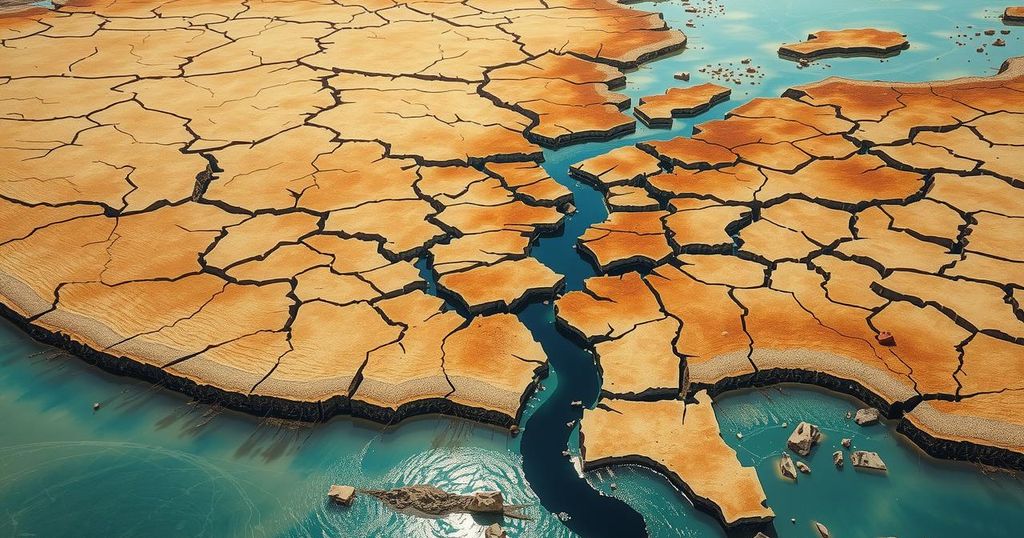2024 Climate Report: Alarming Records and the Urgent Need for Action

The World Meteorological Organization’s 2024 report highlights unprecedented heat records, with temperatures surpassing 1.5°C above pre-industrial averages. Greenhouse gas levels reached their highest in 800,000 years, linking human-induced climate change to severe weather events, including Hurricane Helene and flooding in Africa. Accelerated sea-level rise and droughts further underscore the urgent need for a transition to clean energy and a commitment to reducing emissions.
Climate change poses a critical threat to humanity in the 21st century, making the monitoring of climate changes more vital than ever. According to the World Meteorological Organization (WMO), 2024 has set unprecedented heat records, with temperatures exceeding 1.5°C above pre-industrial averages. The year has also witnessed greenhouse gas concentrations reaching the highest levels in 800,000 years.
The consequences of rising temperatures and unchecked emissions are severe, as demonstrated by climate-related disasters. Notably, Hurricane Helene wreaked havoc in the southeastern United States, and the Sahel region of Africa faced unprecedented flooding. A transition from fossil fuels to clean energy is urgent to mitigate these harmful effects on the planet.
The WMO report highlights alarming trends in global temperatures, marking 2024 as the warmest year recorded since comprehensive data collection began 175 years ago. The average temperature was about 1.55°C warmer than data from 1850 to 1900. This upward trend represents a significant temperature increase of approximately 0.15°C between the record years of 2016/2020 and 2023, with 2024 further indicating warming of 0.1°C above the previous year.
While the Paris Agreement aims to limit temperature increases to below 1.5°C, sustaining temperatures above this threshold in subsequent years may formally undermine this objective. Various contributing factors, such as an El Niño event and reduced shipping pollution, have influenced these temperature spikes, yet the underlying cause remains human-induced climate change.
In addition to record temperatures, carbon dioxide levels surged to 427 parts per million in 2024, with accelerating sea-level rise and ocean temperatures peaking at unprecedented levels. Seasonal sea-ice levels in both the Arctic and Antarctic regions also fell to critical lows, while glacial melt and ocean acidification continued at an alarming pace.
Extreme weather events dominated global headlines, particularly in North America, Europe, and Australia, yet regions such as Africa and South America remain underreported. In September 2024, Super Typhoon Yagi caused extensive devastation across the Philippines, China, and Vietnam, with Cyclone Chido displacing thousands in Mozambique. A catastrophic drought gripped southern Africa, exacerbating food insecurity as tributaries to the Amazon River nearly dried up.
The trend of extreme weather conditions resulted in the highest number of displacements since 2008, underscoring the impact of climate change. Scientists have linked climate change to significant weather events, indicating a strong correlation in cases like Hurricane Helene and the rains in the Sahel.
This report serves as a sobering reminder of the consequences of inaction over decades, as our carbon emissions continue to rise. The consequences of global warming are expected to escalate until a decisive shift away from fossil fuels towards net-zero emissions is achieved, highlighting the importance of immediate action.
The extensive findings outlined in the WMO report reveal a troubling trajectory for global climate conditions. As temperatures rise and extreme weather events increase in frequency and severity, urgent action is required to transition from fossil fuels to clean energy in order to mitigate these adverse impacts. The stark realities of 2024 underlie the critical need for global commitment to address climate change effectively.
Original Source: eveningreport.nz






